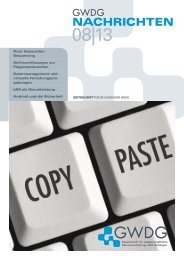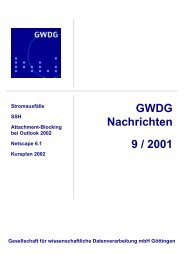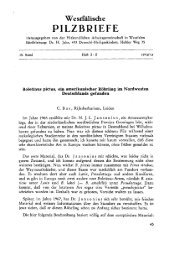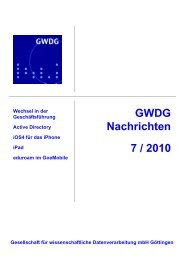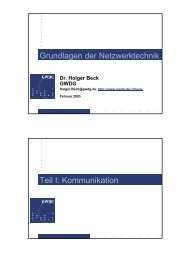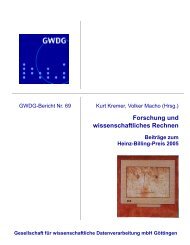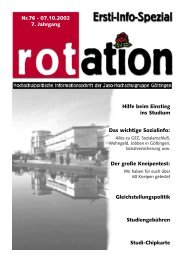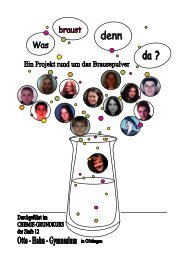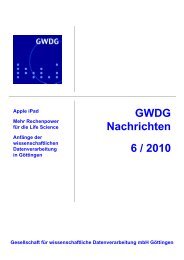You also want an ePaper? Increase the reach of your titles
YUMPU automatically turns print PDFs into web optimized ePapers that Google loves.
Problems for the Adjunct Analysis<br />
Massam (1990); Macfarland (1995); Kuno and Takami (2004)<br />
passivization: [A smile] was smiled somewhere.<br />
def<strong>in</strong>iteness restriction: Pat slept [the sleep of the just].<br />
obligatory modification: You’ve got to live [your life], too. (BNC)<br />
required cognateness:<br />
Van Ald<strong>in</strong> laughed [a quiet little cackle of amusement].<br />
manner paraphrase:<br />
She laughed [a little laugh] <strong>in</strong> her throat, but didn’t answer.<br />
restriction to <strong>in</strong>transitive verbs:<br />
(3) They fought [a heroic fight].<br />
They fought the enemy heroically/ *[a heroic fight].<br />
In <strong>English</strong>: <strong>Cognate</strong> objects are complements.<br />
Manfred Sailer (Gött<strong>in</strong>gen) <strong>Cognate</strong> <strong>Objects</strong> HPSG 2010 9 / 39





